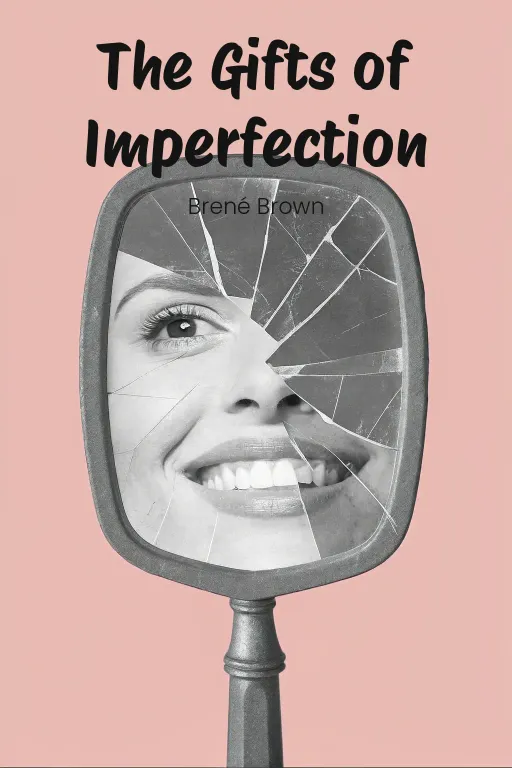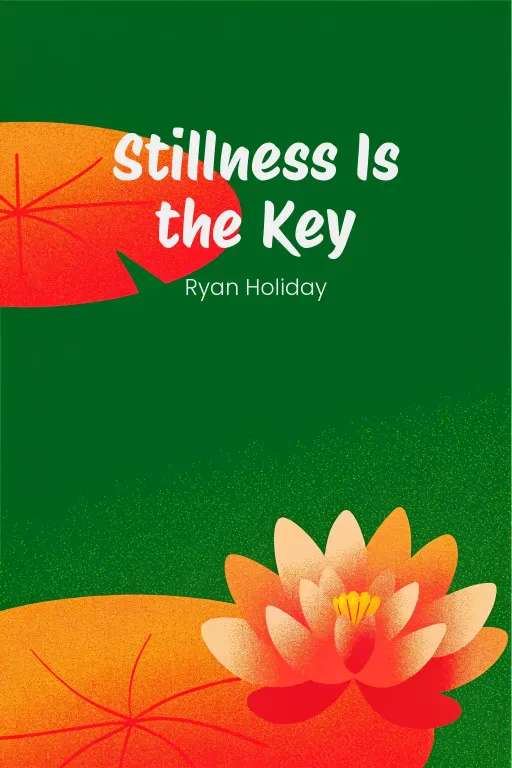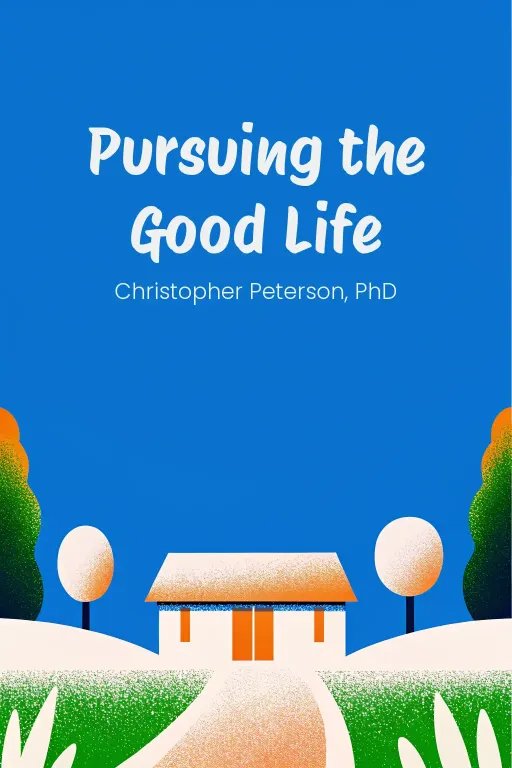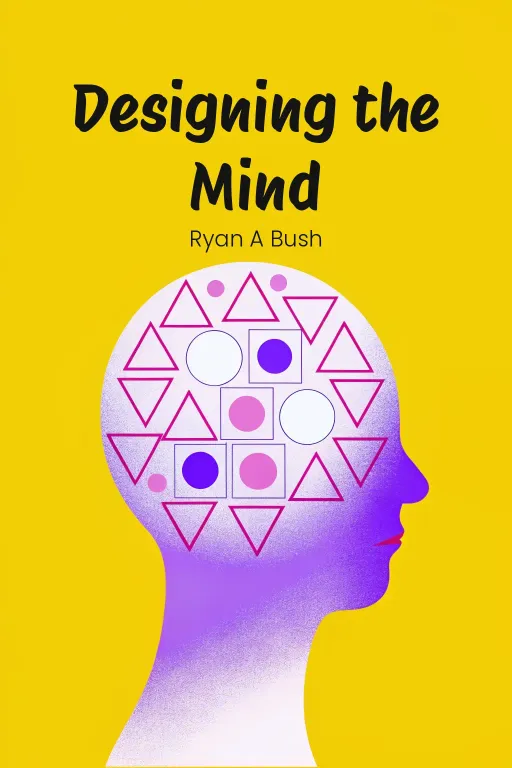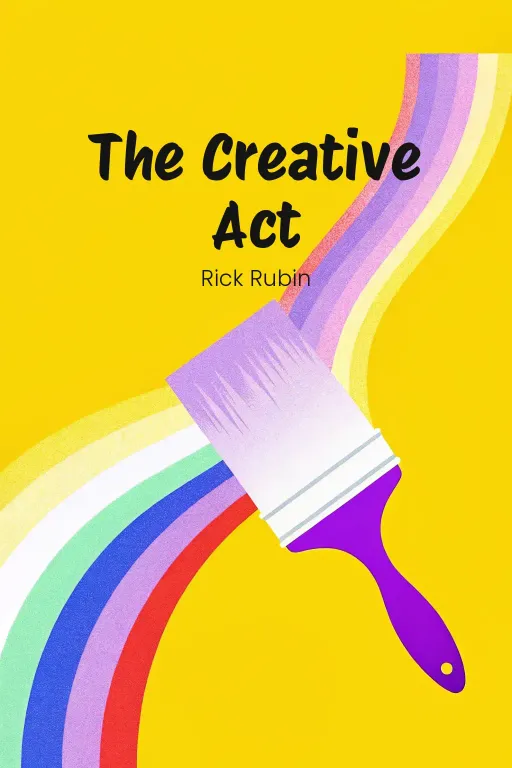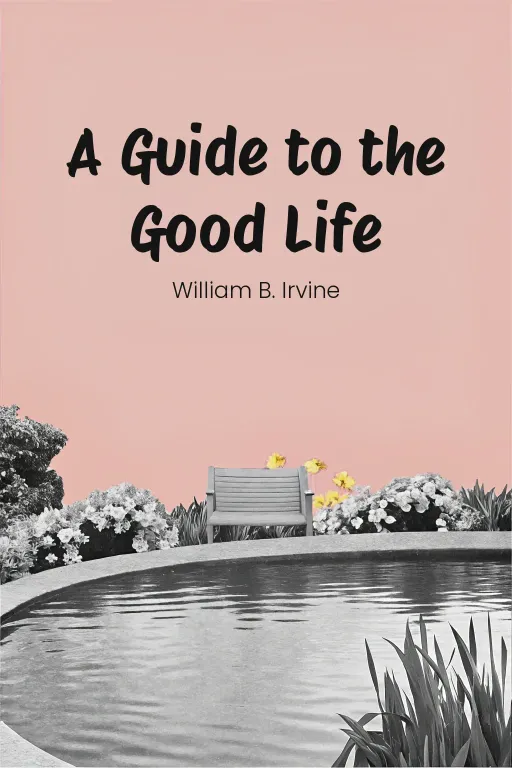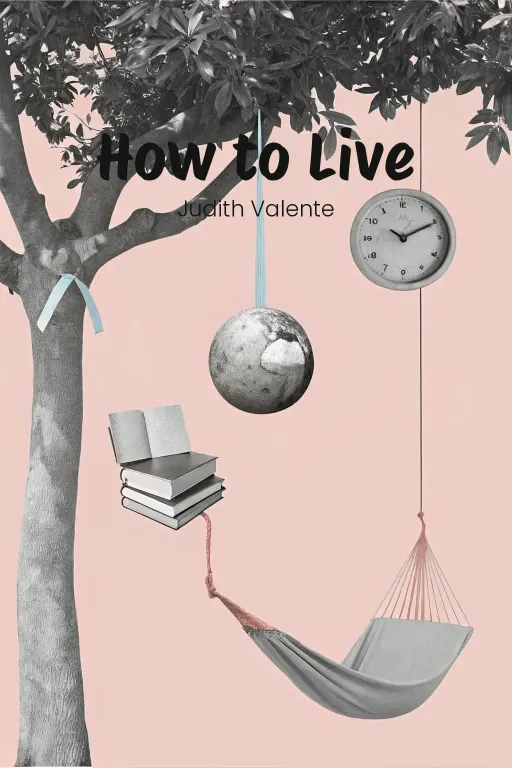
Habit Sticking: Decode YOU First!
Podcast by The Mindful Minute with Autumn and Rachel
Mastering the Habits of Our Everyday Lives
Habit Sticking: Decode YOU First!
Part 1
Autumn: Hey everyone, welcome back! Today we're talking about something super relevant to all of us: habits. I mean, they basically run our lives, right? From that first cup of coffee in the morning to how we chill out before bed, it's all habits. But here's the million-dollar question: why is it such a struggle to actually build good habits, and even tougher to ditch the bad ones? Rachel: Exactly! And, more importantly, why do some people seem to effortlessly crush their goals and stick to their routines, while the rest of us are just... hitting snooze again and again? Is all boils down to willpower, or is there something else going on here? News flash: there's definitely something else going on here. Autumn: Totally! That's where Gretchen Rubin's book, Better Than Before, comes in. She blends the science of habits with her own personal experience to “really” unpack how we create habits. Her big idea? Self-awareness is the secret weapon. Understanding yourself is key to building habits that actually stick. And to help with that, she introduces us to her awesome "Four Tendencies" framework. We're talking Upholders, Questioners, Obligers, and Rebels – each one responds differently to expectations, and that seriously impacts how they form habits. Rachel: But she doesn't just leave you with a personality quiz, right? Rubin gives us some seriously practical tools – think of them as the building blocks of habit change. Whether it's nailing consistency, finding ways to stay accountable, or just tweaking your environment to make good habits easier and bad temptations harder, there’s a little something for everyone. The ultimate goal? To create a life that feels, well, "better than before." Autumn: In this episode, we're going to break down three key ideas from Rubin. First, how your unique personality – those Four Tendencies we mentioned – influences your success with habits. Second, the strategies Rubin swears by, things like scheduling and accountability. And third, we’ll look at the big picture – how those tiny, seemingly insignificant habits can grow into something “really” powerful over time, kind of like the roots of a giant tree. Rachel: So, if you've ever wondered why your to-do list keeps mocking you, why you can't stick to a regular workout routine, or why your friend seems to be a paragon of discipline while you're... well, stress-eating chips on the couch, then this episode is for you. Let's get started, shall we?
The Four Tendencies Framework
Part 2
Autumn: Okay, Rachel, let's dive into the core of Gretchen Rubin's work: the Four Tendencies. Basically, she categorizes people by how they respond to expectations, whether it's an external thing like a work deadline or an internal thing like, you know, sticking to a New Year's resolution. It sounds almost “too” simple, but it really changes how you think about forming habits. Rachel: Simple, maybe, but it's pretty insightful too, I think. Rubin's concept makes you really rethink how you approach basically everything. So, Autumn, can you give us a quick rundown? Who are the players in this framework? And more importantly… which type makes habit-forming look easy? Autumn: That's the thing, Rachel, there's no single "winning" type. It's all about knowing yourself. So, the four types are Upholders, Questioners, Obligers, and Rebels. Let's start with the Upholders. They're like the overachievers of routine; they're equally good at meeting external expectations, like those work deadlines, and internal ones, like personal goals. Rachel: Ah, the Upholders! They sound like mythical beings, thriving on schedules and to-do lists. They're the ones who'll be out there jogging at 6 AM because it's penciled in, right? Not necessarily 'cause they're loving the sunrise... Autumn: Exactly! For them, rules are... well, almost sacred. Rubin tells this story about an Upholder who turned down a dinner invite because it clashed with their bedtime! They didn't even consider moving things around—rules are rules. Rachel: Wow. I admire the discipline, but that sounds... intense, doesn't it? Sticking to the plan so rigidly you miss out on socializing? Doesn't sound like much fun. Autumn: It's a challenge, for sure. Upholders can become a little “too” rigid, following rules even when it doesn't really make sense. But, on the plus side, they're generally reliable, consistent, and they rarely procrastinate. That kind of dependability can be a real strength if they can manage it well. Rachel: Okay, fair enough. Upholders: pros and cons. Let's move on to Questioners. This one hits close to home for me. These are the folks who resist external expectations unless they align with their own internal logic, right? Autumn: Exactly, Rachel. They're the "Why?" people. They need to know why something matters before they're willing to commit. Rubin shares this story of a Questioner who refused to join a gym without seeing hard data proving it was a good value. They wouldn't budge until they got the facts. Rachel: That sounds... suspiciously familiar. I mean, I can't deny it, I'm guilty of overthinking nearly every decision. But isn't there a danger of getting totally bogged down in analysis? Autumn: Absolutely. Rubin calls it "paralysis by analysis." Questioners can get so caught up gathering information that they never actually get around to doing anything. It's their weak spot, especially when it comes to habits that need quick decisions. Rachel: Right! You're halfway through researching gym memberships, a year goes by, and you're still Googling "best gyms near me." Autumn: Exactly. But when Questioners figure out why, they're unstoppable. They just need ways to avoid getting stuck in that questioning loop—like setting deadlines for making decisions. Rachel: Good point. Okay, next up: Obligers. The people-pleasers of the group. If Upholders are self-motivated and Questioners are logic-driven, Obligers are motivated by... others? Autumn: You nailed it. Rubin emphasizes how Obligers thrive when they're accountable to others. Like, an Obliger might struggle to stick to a workout plan on their own, but they'll succeed if they join a running group where everyone expects to see them. Rachel: Right, so it's all about that outside pressure. But doesn't that mean there's a problem when there isn't someone around to provide that accountability? Autumn: Definitely. That's one of the biggest challenges for Obligers. Rubin talks about someone who was super consistent with their running group for years, but completely stopped when the group fell apart. Without those external expectations, their motivation just vanished. Rachel: And let's not forget the whole Obliger Rebellion thing. That's when they get so overwhelmed by everyone else's demands that they just... snap and stop cooperating altogether, right? Autumn: Exactly. It's a reaction to constantly putting others first. Obligers need to proactively set up external systems that support their own personal goals to avoid burning out. Rachel: Alright, then we’ve saved the best—or maybe the most challenging—for last: Rebels. These are the folks who resist both external and internal expectations. Rules are a no-go, even if they set those rules themselves. Autumn: Rebels are fascinating because they value choice and freedom first and foremost. A Rebel might wake up and decide what to do based on their mood that day, instead of following a schedule. They do best when habits align with their identity and give them autonomy. Rachel: So, let me guess—telling a Rebel, "You have to do this," is the fastest way to make sure they don't do it, right? Autumn: Exactly. Rebels thrive when they can frame things like, "I'm the kind of person who does this because it's who I am." One example: A Rebel managed to eat healthier, not through meal plans, but by stocking their pantry with lots of healthy options. That way, they had flexibility while still working toward their goal. Rachel: Okay, so they still get to color outside the lines. What I find really interesting is how Rebels might clash with Upholders. Talk about oil and water. One values rules above all else, the other sees rules as an invitation to rebel. Autumn: That's one reason this framework is so important beyond just personal habits--it's really transformative for relationships, too. Understanding these Tendencies can help you navigate conflicts and support each other a lot better, whether it's with a coworker, a spouse, or a friend. Rachel: Right. So to recap, the Four Tendencies—Upholders, Questioners, Obligers, and Rebels—help us understand not just how we respond to expectations, but how to tweak our strategies for forming habits that actually stick. This isn’t just about awareness; it’s about application. Autumn: Exactly. And Rubin’s framework isn’t one-size-fits-all—it’s a toolbox of strategies for tailoring habits to your Tendency and those around you. Recognizing these patterns is truly transformative—not just for personal growth but for building better connections with others.
Pillars of Effective Habit Formation
Part 3
Autumn: So, we’ve talked about the Four Tendencies and how they explain our natural inclinations. Knowing your Tendency helps you tailor your approach, definitely. But that's really just the starting point. Rubin introduces what she calls the Four Pillars of Habit Formation: Monitoring, Foundation, Scheduling, and Accountability. These are actionable methods that anyone use can, no matter their personality type, to actually build habits that stick. Rachel: Okay, so knowing you're an Obliger or a Rebel isn't going to magically change everything, right? You actually have to get practical and actively work on reinforcing those habits. Autumn: Precisely. The Four Tendencies tell us why we behave a certain way, and these pillars give us the how. Let's start with Monitoring. It’s all about awareness—you can't manage what you don’t measure. Rachel: Right, like, step on the scale if you want to lose weight. But isn't monitoring just another way to feel guilty? I mean, tracking habits can be tedious. Do people really enjoy looking at data on all their failures? Autumn: That's a fair point, Rachel. But monitoring isn't about obsessing over every single detail. It's about creating clarity. Rubin talks about how tracking even small habits can reveal patterns that we don’t even realize. She gives the example of tracking gym attendance. Writing down whether she went to the gym each day made her realize how often she’d make excuses, like being “too tired." Once she saw that pattern, she could tackle those triggers directly. Rachel: So, confronting the lies we tell ourselves, like thinking we only spend a little on takeout each month, but then the receipts pile up, and it’s...terrifying. Didn’t Rubin mention that study where adults underestimated their spending by like 30%? Autumn: Exactly. Awareness brings honesty, and honesty leads to change. Monitoring doesn't have to be intimidating, though. Just start small—journaling how many glasses of water you drink or how many chapters you read each week. It’s like having a flashlight in a dark room. Rachel: As long as that flashlight doesn't shine on those late-night snacking habits we'd rather not talk about. Autumn: Well, that's the challenge, isn't it? Monitoring forces us to face uncomfortable truths. Still, it's crucial for lasting change. And speaking of foundations, let's move to Rubin's second pillar: Foundations. Rather than jumping into super ambitious goals, she emphasizes starting with habits that improve our mental and physical baseline. Rachel: Ah, yes, foundational habits, right? Sleep, exercise, nutrition, and decluttering your space. It all feels so...obvious. “Get your life together?" Autumn: It sounds simple, but the impact is profound. Rubin isn't just saying "get sleep”. She wants to show you how it supports all other habits.” For example, if you don't sleep enough, it affects your willpower, which makes it harder to eat healthy or go to the gym. She shows how addressing the basics has a ripple effect across your whole life. Rachel: It’s like fixing a wobbly table leg before stacking everything else on top. How does Rubin suggest people get started with the foundational habits when they're already exhausted? Autumn: Right, that's a great point! Rubin acknowledges that starting small helps a lot. Just a consistent bedtime or a ten-minute walk can build momentum. She's mentioned how prioritizing sleep makes her less likely to snack late at night, which gave her more energy for exercising. You focus on one pillar, and the others tend to follow. Rachel: Makes sense. Moving to Scheduling. This isn't just about the "when" of a habit, but about ritualizing the habit into your day. Rubin’s example of scheduling meditation for five minutes in the morning was an eye-opener. It’s about creating a clear, doable path. Autumn: Exactly. By setting a specific time, you remove the ambiguity. Scheduling gets rid of decision fatigue, which can be a major hurdle. Rubin’s family game night example is fantastic, too. Putting that time on the calendar made it a priority—it had become a tradition, not an idea. Rachel: But what happens when life messes up your schedule? What if you've scheduled exercise, but your kid gets sick, or you have to go to work early? Does that rigid scheduling set people up to fail when chaos hits? Autumn: That's a valid concern. Rubin argues that scheduling is more of a guidepost than an inflexible plan. Life throws curveballs, but those scheduled blocks still help you recalibrate and get back on track. It’s a framework for habits. Rachel: Got it. Now, the last pillar: Accountability. This one feels the most human. When someone's relying on you, it somehow makes it much harder to drop the habit. Autumn: Exactly. Rubin emphasizes the power of external motivation, especially for Obligers. With a running group, for instance, an Obliger might hate the idea of leaving their couch. But if their running buddy is waiting, that social commitment becomes their driving force. Rachel: Right, it's guilt as a motivator. Rubin mentioned “commitment devices”—adding stakes to your goals, like donating to a cause you hate if you miss the mark. It's ingenious, but I can see a Rebel finding that kind of thing… contrived. Autumn: True! Rebels tend to resist accountability. But they can still thrive on relationships, as long as they feel like they’re in control. A Rebel might stay on track by thinking, "This makes me unique. I'm the kind of person who follows through." Rachel: The beauty here is accountability isn't one-size-fits-all. Upholders might self-accountability or an Obliger joining a team project because they'd never let down colleagues. Autumn: Exactly. The genius is combining the Four Tendencies and the Four Pillars—theory meets practice. Monitoring raises awareness, Foundations set the stage, Scheduling adds structure, and Accountability locks it in with external or internal motivation. It’s an integrated system designed to make habits sustainable for a long time. Rachel: And when you put it all together, you're not just building habits, but crafting a life that aligns with your values and goals.
Habits as Identity and Long-Term Growth
Part 4
Autumn: So, with those strategies in place, the next step is personalization, right? Making sure our habits actually fit who we are and how we live. And that brings us to one of my favorite ideas from Rubin’s book – how our habits are all tangled up with our identity and how that shapes our long-term growth. Rachel: Yeah, this is the part I find really interesting. We usually think of habits as just these little things we do, like flossing or going to the gym. But Rubin’s talking about something deeper, isn’t she? She’s saying that habits become part of who we are. It’s not just about the actions themselves, but how our self-perception drives those actions – or, you know, sometimes completely messes them up. Autumn: Exactly! She argues that the habits that “really” stick aren’t the ones linked to short-term goals, like losing weight for a wedding. It’s the ones connected to how we see ourselves. If you truly believe "I'm a healthy person," then eating well and exercising aren’t just chores; they’re how you express that identity. Rachel: Okay, but how do you actually do that? How do you connect a habit to your identity? It's easy to say, "I'm healthy" or "I'm a runner," but how do you bridge the gap between saying it and actually feeling it? Autumn: Well, Rubin addresses that "gap," as you call it. One useful thing she suggests is reframing how we talk to ourselves. For example, someone who says, "I try to run," versus someone who says, "I'm a runner." The first is kind of tentative, right? It’s an activity they do sometimes. The second? It’s a core part of who they are, and that reinforces the habit. Rachel: So it’s like a mental makeover. Instead of trying on a habit, you put it on and think, "This is the new me." But isn’t there a danger that the language shift feels…fake? I mean, what if someone says, "I'm a writer," but they haven't written a single word? Isn’t that just setting themselves up for disappointment? Autumn: That’s a fair point. But Rubin would argue that identity isn’t necessarily about being an expert or achieving a specific outcome. It’s about the process. Let’s take those aspiring writers, for example. Many hesitate to say, "I'm a writer," because they think that means publishing a book or winning an award. But Rubin says if they're writing every day – regardless of external validation – they’re already living that identity. It’s about committing to the process, not waiting for some kind of proof. Rachel: I can see the psychological shift there. Instead of writing to become a writer, you write because you are one. But what happens when these identities clash? Remember that example Rubin gives of the mother torn between being a fitness enthusiast and being there for her child? How do you resolve that kind of internal conflict? Autumn: That’s such a great example, and it highlights a key idea in Rubin’s work: reducing cognitive dissonance. In that case, the mother felt like choosing exercise was selfish when her child wanted her to read a bedtime story. So, she reframed her identity to be "a healthy mother who sets a good example." Suddenly, her fitness habit wasn’t fighting against her role as a mother; it was part of it. Rachel: So, she turned a lose-lose into a win-win by redefining her values. Instead of seeing these things as competing, she aligned them. That’s…smart. Autumn: Absolutely! And Rubin encourages us to do the same in our own lives. When you’re fighting against a habit, ask yourself: Does this line up with who I want to be? If not, how can I reframe it, so it does? It’s a small change, but it can make a huge difference. Rachel: Speaking of small changes, what about those conflicting values? Rubin brings up that couple who couldn’t agree on whether to have a tidy house or relax on the weekends. They were constantly fighting about chores until they hired a cleaning service. I mean, that's a simple fix, but it feels like they had to be “really” honest about what mattered to them. Autumn: Exactly. Rubin stresses the importance of clarity – about what you value most and how your habits fit into that picture. For that couple, realizing they could outsource one value (a clean house) to make room for another (leisure time together) got rid of a major stressor. Rachel: That's the same idea as that guy who loved long bike rides on weekends but felt guilty about missing family time, right? He balanced things by adjusting his schedule – getting up earlier to ride so he'd still have time for his family later. Autumn: Yes! These examples show how clarity isn’t just about knowing your values, it’s about proactively adjusting your habits so they support them. That can even mean creating "bright-line rules," as Rubin calls them. Rachel: Ah yes, the no-nonsense, black-and-white rules that make decisions easier. Like the person who decided they'd never hit snooze, or Rubin's friend who brushes his teeth while balancing on one foot. Autumn: Exactly. Bright-line rules take away the gray area. They’re clear, unambiguous decisions that cut down on the mental energy of "Should I or shouldn’t I?" Rachel: They're practical, sure, but they also feel a bit…inflexible. What happens if life throws you a curveball, and you break the rule, even unintentionally? Autumn: That's a great question. Rubin would say that flexibility is just as important as clarity. Life changes – careers shift, relationships evolve – and habits need to evolve too. She emphasizes revisiting your habits regularly to make sure they’re still relevant and effective. Rachel: Got it. So, the goal isn't to create habits that last forever, it's to create habits that grow with you. And having the right people around you can help with that growth. Rubin talks a lot about community, like those "Better Than Before" habit groups where people keep each other accountable and share their challenges. Autumn: Community support is huge. Research even shows that health behaviors, for example, spread through social circles – it’s called "health concordance." If you start eating healthier, your spouse or roommate is more likely to do the same. Rachel: And that's the power of environment. If the people around you are reinforcing your habits, it’s easier to stay on track. But Rubin also warns against tying habits to finish lines, right? Like training for a race or dieting for an event. Once you've hit the goal, it can all fall apart. Autumn: That's why habits based on identity are so important. If someone sees themselves as a runner, they’ll keep running even after the race is over. It's not about the race; it's about living that identity. Rachel: So much of this comes back to self-awareness: knowing your priorities, finding your “why,” and aligning your habits with how you see yourself – or how you’d like to see yourself. It’s less about reaching a final destination and more about ongoing progress that evolves with you. Autumn: Exactly, Rachel. When habits are deeply connected to who we are, they create a foundation for lifelong progress, not just fleeting achievements. Rubin's approach shows us how to make that connection, so our habits not only stick but also transform us in lasting and meaningful ways.
Conclusion
Part 5
Autumn: Okay, Rachel, we've really dug in today. We talked about Gretchen Rubin’s Four Tendencies, which is all about why we react to expectations the way we do. And then we broke down the four pillars of habit formation—Monitoring, Foundation, Scheduling, and Accountability—that show us how to actually build habits that stick. Rachel: Right, and it's not just about the surface-level stuff. We also touched on how habits reflect our identity and drive long-term growth, right? Rubin basically says it's less about just checking things off a list and more about slowly becoming the kind of person we aspire to be. Autumn: Precisely! Whether you're an Upholder who loves routines, a Questioner who needs a good reason, an Obliger who thrives on accountability, or a Rebel who values freedom, the big thing here is knowing yourself. When you really get your own tendencies and what makes you tick, then you can tailor your habits to fit you. Rachel: Alright, so here’s a thought experiment for everyone listening. Ask yourself: First, which of those Four Tendencies really speaks to you? And second, what's one single habit—just one—that could genuinely make your life better? It could be something small like drinking more water, or something bigger like finally starting that novel. Just pick something that feels right for you. Autumn: And remember, it's not about being perfect from day one, okay? It's about making progress, inch by inch. Every little positive change you make is like planting a tiny seed for growth down the road. Thanks so much for tuning in today, everyone! We’ll catch you next time for another deep exploration into living with purpose! Rachel: Until then, keep questioning those expectations, and remember this: Building new habits isn’t just about doing more stuff—it’s about becoming a better version of yourself. Take care!

